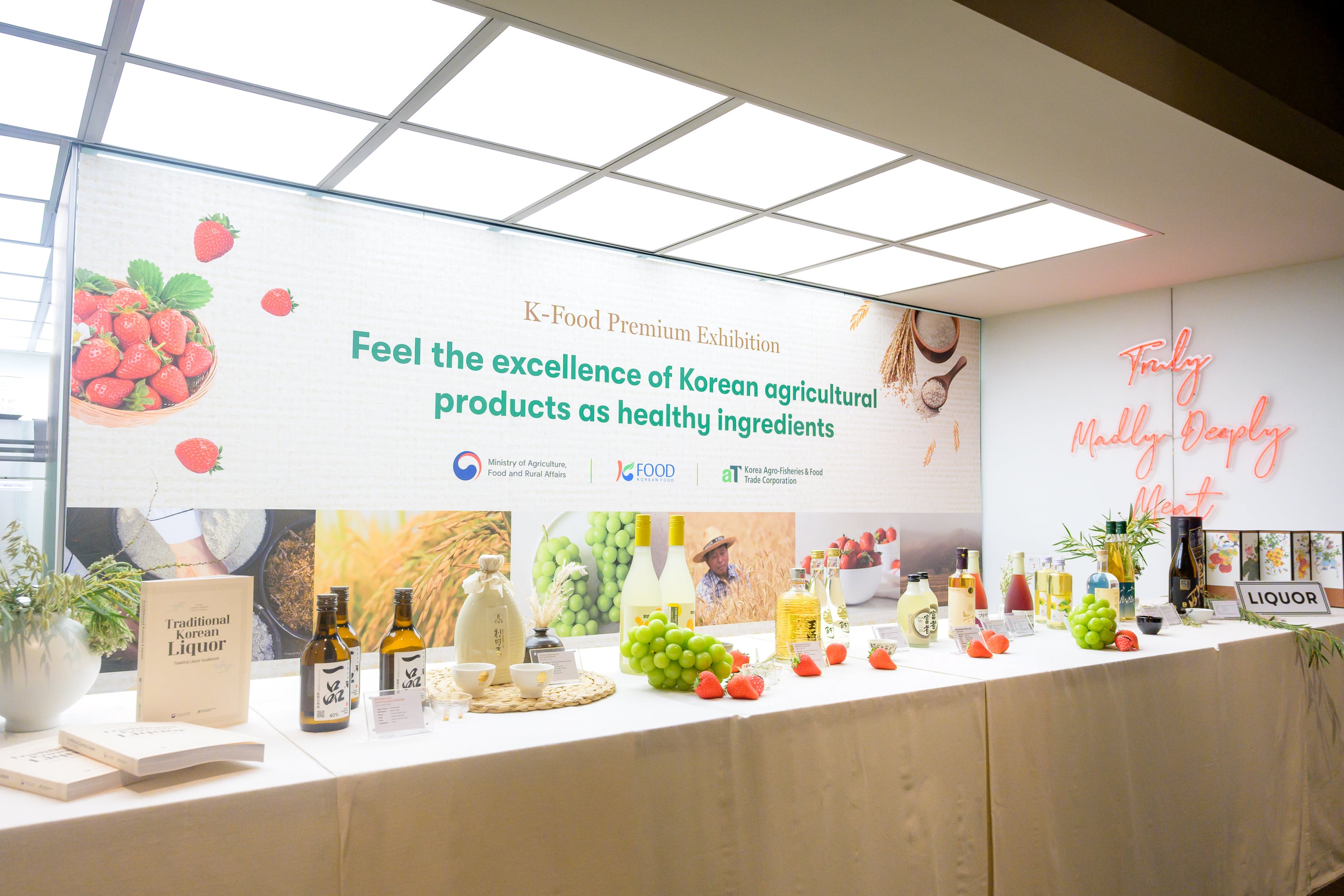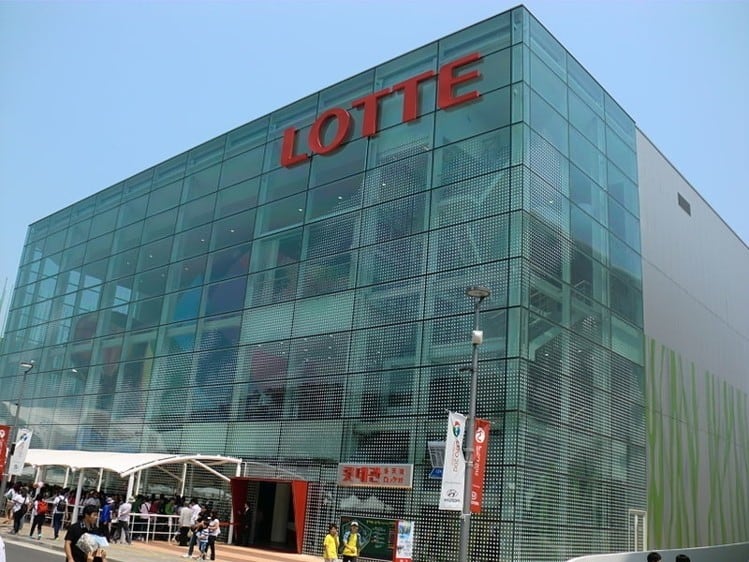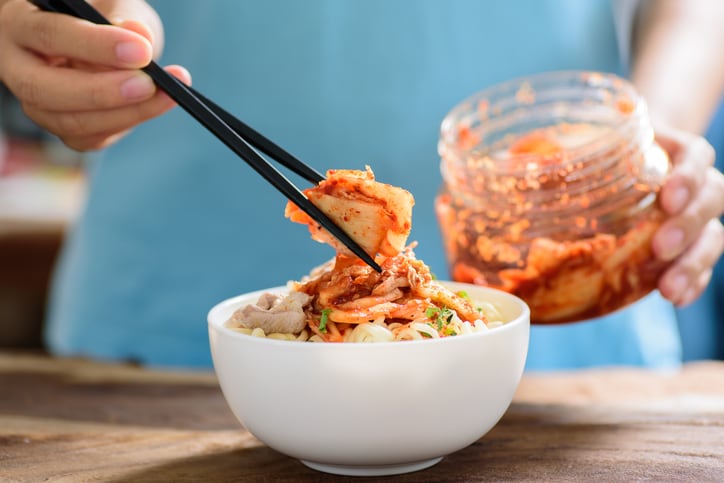Established in 1967, aT is a government agency dedicated to advancing the global trade and marketing of Korean food and beverage products and culinary culture.
According to the organisation, South East Asian (SEA) markets, particularly Singapore, present strong growth potential for Korea’s agriculture and food industry.
As such, aT is working to ensure that more Korean premium food products are exported and experienced by consumers in this region.
“The biggest food exports to SEA include ramyeon (instant noodles), tteokbokki (simmered rice cake), doenjang (fermented soybean paste), Korean snacks, and seasonings like gochujang (fermented red pepper paste) and soy sauce, which are widely available across retail and e-commerce platforms.
“Fresh premium produce, especially Shine Muscat grapes and Korean strawberries, are gaining popularity in markets like Singapore, Vietnam, and Thailand. Additionally, beverages such as flavoured soju (distilled liquor), ginseng, and coffee are increasingly popular among the younger generation who are drawn to Korean culture and lifestyle trends.
“With SEA’s dynamic consumer base and openness to global food trends, the region remains a key growth market for Korea’s agri-food exports,” Chang Chung Ho, Director of aT’s Kuala Lumpur branch, told FoodNavigator-Asia.
Through promotional activities, consumer experience events, and streamlined logistics, aT aims to deliver Korean products at their freshest and highest quality.
“We see increasing opportunities to connect with Singaporean consumers who value authenticity, quality, and unique gastronomic experiences. Our focus is to make Korean food not just accessible, but truly appreciated through various channels, from retail to foodservice to direct consumer engagement.
“With the burgeoning trend of pairing K-cuisine with traditional liquors, there is exciting potential for this to become a signature cultural and culinary experience in Singapore.”
On March 20, aT held an event at The Butcher’s Dining restaurant in Singapore, which featured a cooking demonstration highlighting Korea-grown premium rice and fruits, as well as a showcase of Korean produce and alcoholic beverages.
The event was attended by Korea’s Minister of Agriculture, Food and Rural Affairs, Song Mi-Ryung, and Ambassador of Korea to Singapore, Hong Jin-Wook.
Flavours to watch
The chewy texture of Korean rice sets it apart from varieties such as Thai jasmine rice and Vietnamese broken rice.
A good source of essential nutrients, the rice serves as a base for many beloved Korean dishes, including bibimbap (mixed rice), tteokbokki, and tteokguk (rice cake soup).
The demand for these dishes across retail and foodservice sectors is further driven by the persisting popularity of Korean pop culture and growing appreciation for K-cuisine.
“Bibimbap, a mixed rice dish topped with a variety of vegetables and gochujang, is celebrated for its balance of flavour and healthy nutrition, while tteokguk holds cultural significance as a hearty dish enjoyed during Korean New Year, symbolising renewal and family warmth.
“There’s also strong interest in Korea’s fermented and functional foods, especially kimchi, and doenjang, recognised for their bold flavours and health benefits. Rich in probiotics, these foods support gut health, improve digestion, and contribute to overall well-being.
“This aligns with the increasing consumer focus on immune-boosting foods, making nutrient-dense Korean ingredients widely used in both fusion cuisine and wellness-focused diets around the world,” Chang shared.
Furthermore, tteokbokki is emerging as a globally recognised comfort food, with creative variations ranging from cheese-filled to fusion-inspired sauces.
Traditional Korean alcoholic beverages are drawing attention for their clean, smooth taste and versatility. When paired with dishes like tteokbokki, they create a “well-balanced and culturally rich” dining experience.
“Korean food trends are continuously evolving, blending time-honoured recipes with modern tastes. A few standout products include Shine Muscat grapes, known for their sweetness, crisp texture and edible skin, which are rapidly rising in popularity in premium fruit markets across Asia and beyond.
“Similarly, Korean strawberries, prized for their juiciness and balanced flavour, are making their way into high-end desserts and fresh produce selections worldwide. Frequently used in both savoury and sweet dishes, these fruits are not only a treat for the palate but also rich in antioxidants and vitamin C, further reinforcing the health benefits of Korean cuisine.”
Chang emphasised that aT is focused on supporting these trends by expanding the reach of Korea’s high-quality food products, and working with partners to introduce the next wave of Korean flavours to Singapore and the region.





